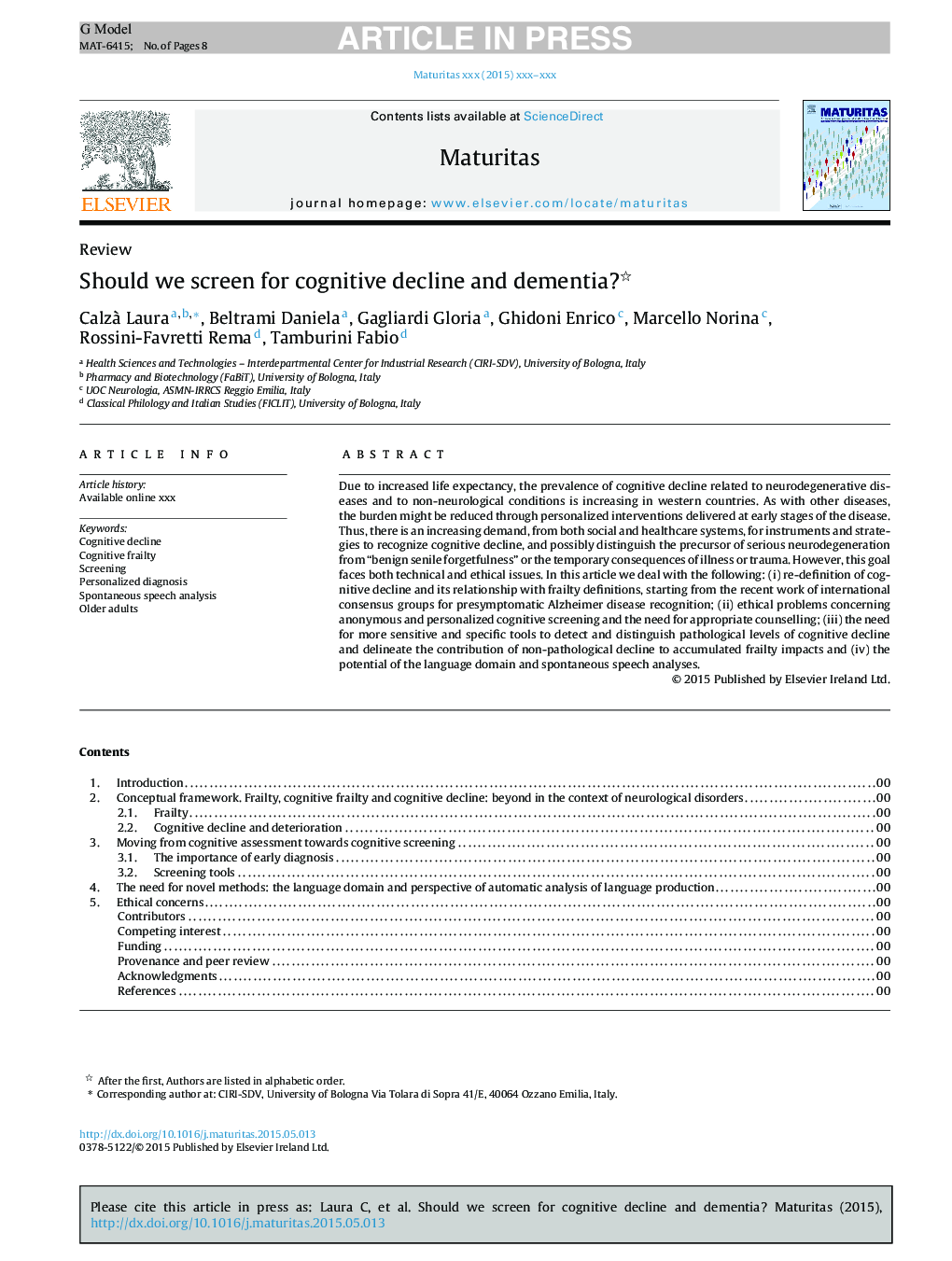| Article ID | Journal | Published Year | Pages | File Type |
|---|---|---|---|---|
| 10743343 | Maturitas | 2015 | 8 Pages |
Abstract
Due to increased life expectancy, the prevalence of cognitive decline related to neurodegenerative diseases and to non-neurological conditions is increasing in western countries. As with other diseases, the burden might be reduced through personalized interventions delivered at early stages of the disease. Thus, there is an increasing demand, from both social and healthcare systems, for instruments and strategies to recognize cognitive decline, and possibly distinguish the precursor of serious neurodegeneration from “benign senile forgetfulness” or the temporary consequences of illness or trauma. However, this goal faces both technical and ethical issues. In this article we deal with the following: (i) re-definition of cognitive decline and its relationship with frailty definitions, starting from the recent work of international consensus groups for presymptomatic Alzheimer disease recognition; (ii) ethical problems concerning anonymous and personalized cognitive screening and the need for appropriate counselling; (iii) the need for more sensitive and specific tools to detect and distinguish pathological levels of cognitive decline and delineate the contribution of non-pathological decline to accumulated frailty impacts and (iv) the potential of the language domain and spontaneous speech analyses.
Related Topics
Life Sciences
Biochemistry, Genetics and Molecular Biology
Ageing
Authors
Laura Calzà , Daniela Beltrami, Gloria Gagliardi, Enrico Ghidoni, Norina Marcello, Rema Rossini-Favretti, Fabio Tamburini,
